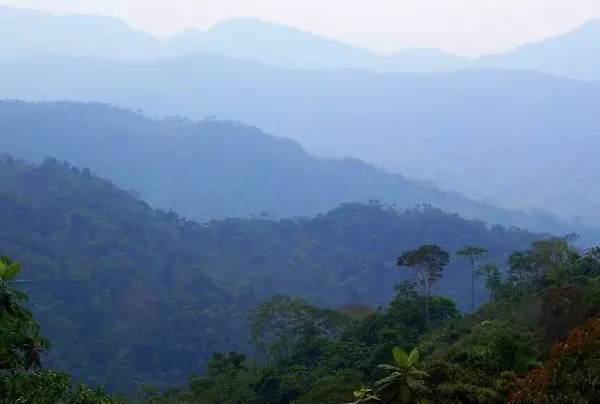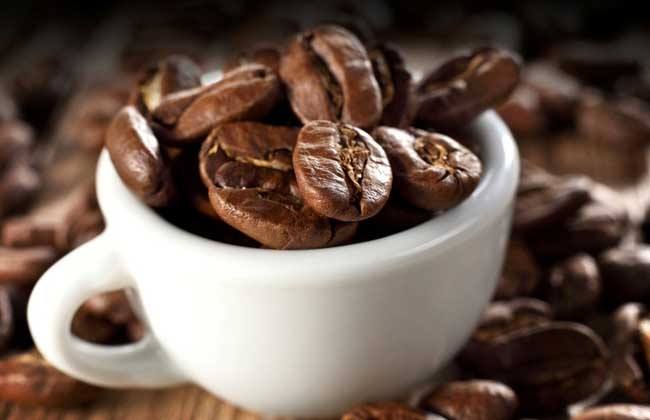Description of taste and flavor of coffee beans for solitary travelers in Dark Arts, Bolivia
Pay attention to coffee reviews (Weixin Official Accounts vdailycom ) and find a beautiful cafe to open your own shop
Bolivian sopi
Suapi comes from La Paz, outside the city of Caranavi, where coffee cherries are processed in small farms, mechanically peeled and pulped, fermented overnight in small fermentation tanks, washed and dried in small sunbeds or elevated beds.
Bolivia used to be a producer country that could be said to have been ignored by the fine coffee market, but that has changed only in recent years. With its snowy mountains, vast plateaus and tropical rainforests, Bolivia is in fact an ideal coffee producer, with more than 90% of coffee produced in the Yungas region of La Paz, at altitudes of 800-1800 meters. Other regions include Cochabamba, Santa Cruz and Tarija. Bolivia produces about 20 million pounds of coffee a year, making it a small producer and ranking outside the top 25 in the world.

While other Central and South American countries have switched from traditional coffee species to higher-yielding ones in order to increase yields, Bolivia has retained many of the older trees, which have excellent flavor and, if properly processed and roasted, produce high-quality coffee. At the same time, coffee cultivation in Bolivia has a relatively high shade ratio, fruit ripens slowly, and cherries have a higher sugar content. These factors make Bolivian coffee unique, and many people even call it the "hidden valley" in the fine coffee world.
Bolivia is dominated by small coffee farmers, with small yields and batches, and local women do the manual sorting of raw beans. Small farmers help each other harvest during harvest season, reducing the need to hire migrant workers and greatly improving harvest quality. Because humidity and high atmospheric pressure accelerate the fermentation process, the fermentation time of washed beans is only about overnight, no more than 18 hours, i.e. drying in an elevated shed (occasionally on the terrace floor). A high proportion of the use of elevated sheds can avoid the excessive heat of standard concrete solarization and delay the drying time of fruits.
Carranami is the heart of Yangus, a long mountain rainforest region that spans Peru, Bolivia and northern Argentina. Local farmers use springs from the Andes for various operations, washing to remove pulp, and then drying in the sun on wooden racks. Varieties include Typica, Caturra and Catuai. This coffee is kadura, and the treatment is semi-washed.
Dark Arts has named the bean "Lonely Traveler" for some reason, perhaps because Bolivia has been neglected by the fine coffee market for too long; perhaps because it can enjoy the sweetness of freedom on a lonely trip.
Since last year Bolivia has been a very eye-catching virgin land. Organic cultivation is quite common, high altitude, the overall environment is not polluted, La Paz has fertile soil bred by the Yangs Mountains, is Bolivia's best production area, this cadura semi-washed treatment, caramel and sugar sweet feeling, summer made iced coffee without sugar, aftertaste endless!
Dark Arts Dark Arts!
Coffee with heavy metal music.
The scruffy bearded bean baker, the co-founder with the bizarre accent, London is not just the City and the shopping streets, prepare for the impact of tattoos, working class and heavy machinery!
Dark Arts Coffee originated in the borough of Hackney in East London. Bradley Morrison, who met Colin Mitchell at a motorcycle carnival in 2013, was originally a bartender at a cafe, but he was dissatisfied with the coffee he served, and he thought he could provide better coffee, so he asked the cafe owner: "If I open a bean roasting shop and provide better coffee beans for you, would you like to use my beans?" The boss said yes. In 2014, Dark Arts was born.
Bradley bakes hard hearts in a Diedrich IR-12 bean dryer (Stone Heart), Holy Mountain Holy Mountain, Life After Death (Life After Death), mother tongue (Mother tongue), Sorry Mama and other strange names of coffee, don't ask us how these names come from, the black magic chief barista said, each bag of beans has a little bit of fun and language games, such as their coffee beans have a small label on the bag "liberation tired", and cold extraction coffee called: revenge: Best served Cold!
They set up a corner in the bakery where coffee was served only on weekends. The name I Will Kill Again was intended to allow guests to enjoy a good cup of coffee on weekends while eating locally sourced meals. The main guests were motorcyclists. Every weekend, groups of tattooed teenagers would come to them on heavy motorcycles, and the store was far more popular than expected. Black magic coffees are single-origin, roasted to perfection, and suitable for all brewing methods.
Dark Arts describes itself as the villain of coffee, the bad boy of coffee, introducing itself as follows: "Starting under the Chen Yin Bridge in Hackney, we don't want to encourage the trend of urban gentrification in East London, so we do everything we can to attract heavy machinery, geeks and even vegetarian mothers to our shop. Ah fuck it!" They give each coffee a strange name, but they laugh at themselves that no one cares about their ideas except their own mother.
Important Notice :
前街咖啡 FrontStreet Coffee has moved to new addredd:
FrontStreet Coffee Address: 315,Donghua East Road,GuangZhou
Tel:020 38364473
- Prev

Flavor characteristics of Guatemalan Vivette Nan Fruit Coffee beans suggestion on Food rations and Bean Cooking in Front Street of Guatemala
01 | introduction byChrisKornmanSanPedroNecta is a city in the Vivette Nanguo region of Guatemala. Sometimes Vivette Nanguo is also referred to as Vivi, abbreviated as HHT. Vivette Nanguo region can be said to be one of the most famous coffee producing areas in Guatemala. The sea in this area
- Next

Grading criteria for Salvadoran coffee
Following Cafe Review (Wechat official account vdailycom) found that the grading standard of Salvadoran coffee opened by Beautiful Cafe is based on the altitude of planting, with the highest grade being SHG: SHG:Strictly High Grown-1200 meters or above; HG:High Grown-900 meters or more; CS:Central Standard-600 meters or more. El Salvador boutique
Related
- Detailed explanation of Jadeite planting Land in Panamanian Jadeite Manor introduction to the grading system of Jadeite competitive bidding, Red bid, Green bid and Rose Summer
- Story of Coffee planting in Brenka region of Costa Rica Stonehenge Manor anaerobic heavy honey treatment of flavor mouth
- What's on the barrel of Blue Mountain Coffee beans?
- Can American coffee also pull flowers? How to use hot American style to pull out a good-looking pattern?
- Can you make a cold extract with coffee beans? What is the right proportion for cold-extracted coffee formula?
- Indonesian PWN Gold Mandrine Coffee Origin Features Flavor How to Chong? Mandolin coffee is American.
- A brief introduction to the flavor characteristics of Brazilian yellow bourbon coffee beans
- What is the effect of different water quality on the flavor of cold-extracted coffee? What kind of water is best for brewing coffee?
- Why do you think of Rose Summer whenever you mention Panamanian coffee?
- Introduction to the characteristics of authentic blue mountain coffee bean producing areas? What is the CIB Coffee Authority in Jamaica?

